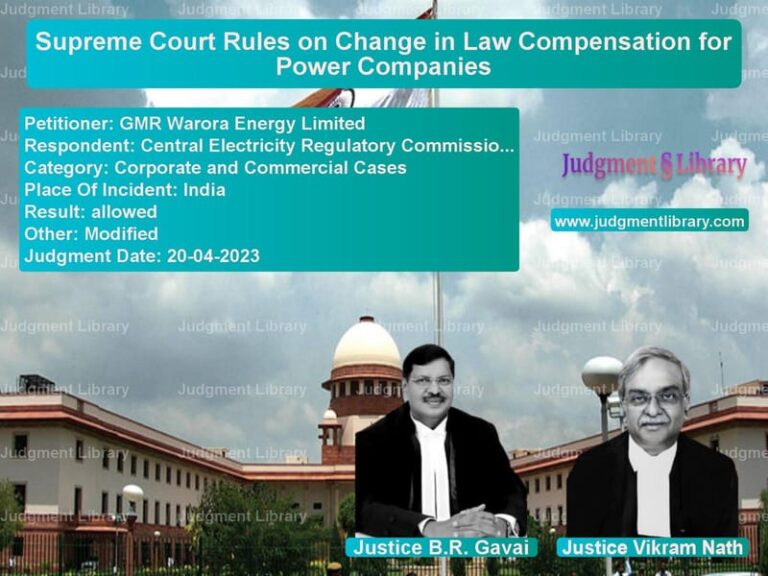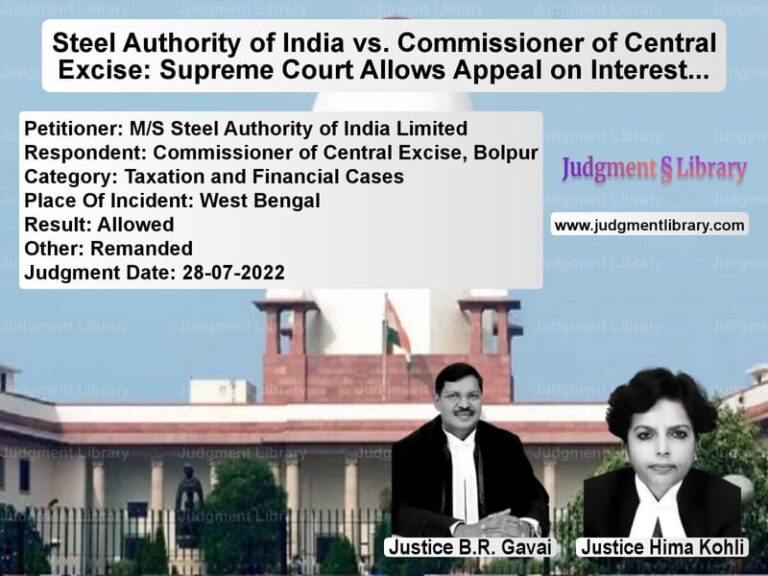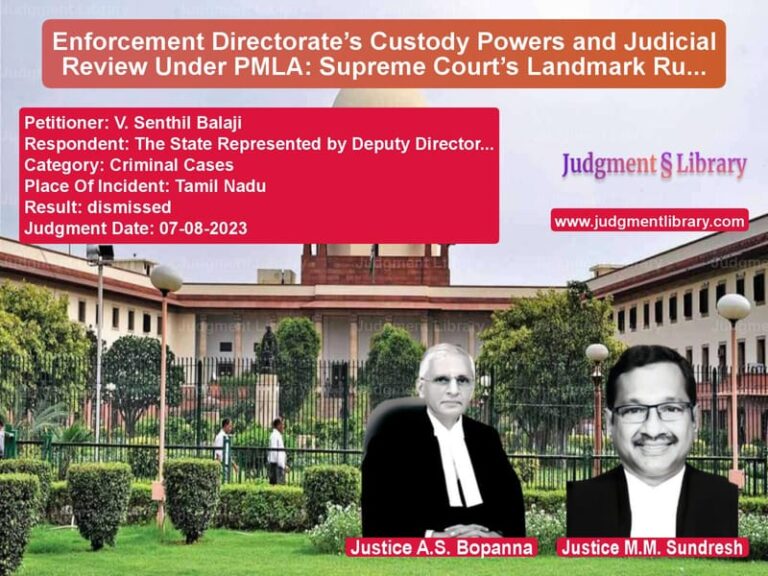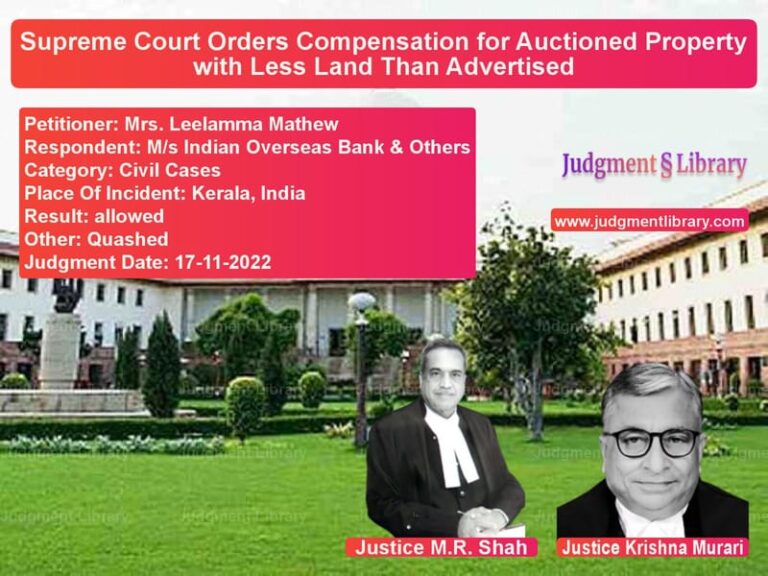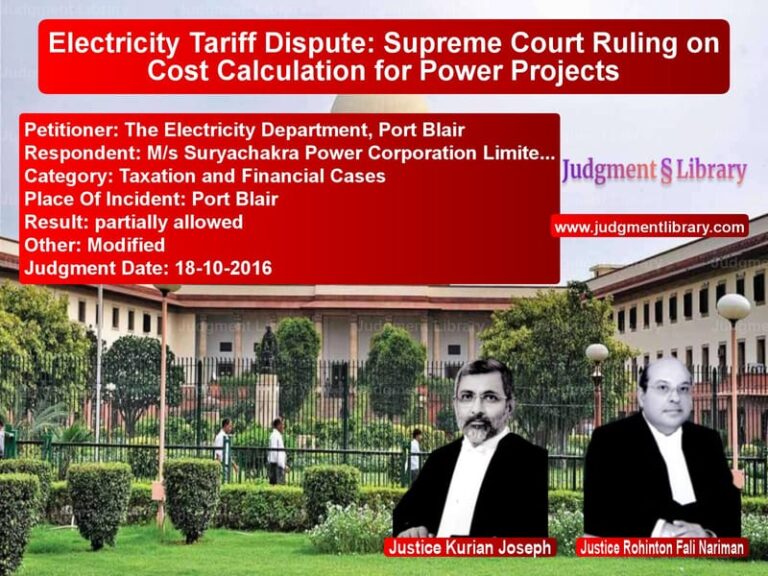DDA Lease Renewal Dispute: Supreme Court Clarifies Public Property Rights
The Supreme Court of India recently delivered a crucial judgment in the case of Delhi Development Authority (DDA) v. M/S Anant Raj Agencies Pvt. Ltd., which examined whether the acceptance of rent by a public authority amounts to an automatic renewal of lease rights. The case revolves around leasehold property rights, public property management, and the statutory obligations of government authorities in administering land leases.
Background of the Case
The Delhi Improvement Trust, through a lease deed dated January 6, 1951, granted a 20-year lease on a plot in Jhandewalan, Delhi, to the original lessee, Balraj Virmani. Under the lease terms, the lessee had the option to seek renewal for another 20 years if they complied with the terms of the lease and formally notified the lessor six months before expiration. Following the enactment of the Delhi Development Act, 1957, the Delhi Development Authority (DDA) took over administrative control of the land.
The lease expired on August 10, 1968. Although the lessee had applied for renewal on February 23, 1967, the DDA issued a show cause notice on February 16, 1968, citing multiple violations of the lease agreement. The alleged breaches included:
- Unauthorized use of mezzanine floors for purposes other than cold storage.
- Subletting to another entity without DDA’s approval.
- Utilization of the premises for residential purposes by staff, violating the lease conditions.
- Failure to construct a multi-story building as required under the lease terms.
The lessee responded through multiple communications in 1968 but failed to rectify the violations. Consequently, on September 1, 1972, the DDA formally terminated the lease. However, the lessee continued to occupy the premises and filed a suit challenging the termination, arguing that DDA’s subsequent acceptance of rent indicated an implicit renewal of the lease.
Legal Issues Considered by the Supreme Court
- Does the acceptance of rent by a public authority imply an automatic lease renewal?
- Can a lessee claim lease rights based on the government’s inaction in evicting them?
- Does a lessee, whose lease has expired, have the authority to transfer property rights to a third party?
- Does public property management require adherence to explicit statutory provisions?
Arguments by the Appellant (Delhi Development Authority)
The DDA, seeking reversal of the lower courts’ rulings, presented the following arguments:
- The lease agreement explicitly required a written renewal, which was never granted.
- The lessee had committed multiple breaches of the lease conditions, justifying termination.
- The mere acceptance of rent was an administrative act and did not signify legal renewal.
- The lessee, having no legal interest in the property post-lease termination, could not transfer it to a third party.
- The lower courts erred in interpreting DDA’s conduct as an implied renewal.
Arguments by the Respondent (M/S Anant Raj Agencies Pvt. Ltd.)
The respondent, which had acquired rights from the original lessee, countered with the following arguments:
- The lessee’s renewal application was timely and should have been honored.
- The DDA’s acceptance of rent over the years amounted to tacit approval of lease renewal.
- The DDA’s inaction for several decades indicated an intention to continue the lease.
- Since the original lessee was never evicted, they had the right to transfer the property.
- The courts had correctly ruled in favor of the lessee based on conduct and equity.
Supreme Court’s Judgment
The Supreme Court ruled in favor of the DDA, setting aside the High Court’s judgment. The key findings of the Court were:
- Lease renewals must be formalized through written agreements, and the absence of such an agreement means no renewal occurred.
- Acceptance of rent does not confer legal lease rights unless explicitly agreed upon by both parties.
- The lessee’s unauthorized use of the premises and failure to rectify breaches negated any claims of continued rights.
- The property, being public land, could not be transferred to a third party without adherence to statutory provisions.
In its ruling, the Supreme Court noted:
“The mere act of collecting rent does not constitute lease renewal. Public property cannot be held to informal contractual interpretations when explicit statutory provisions exist.”
Impact of the Judgment
This landmark ruling has significant implications:
- Public authorities must strictly follow lease renewal policies to avoid ambiguity.
- Tenants cannot claim indefinite lease rights based on inaction or rent payments.
- Unauthorized transfers of public land are invalid and unenforceable.
- The judgment reinforces that government policies on land management must be transparent and legally sound.
Conclusion
The Supreme Court’s ruling in this case upholds the principle that public property cannot be leased indefinitely without explicit renewal agreements. The judgment clarifies that mere rent collection does not override legal requirements for lease renewals, ensuring greater accountability in public land management. This decision serves as a crucial precedent in property law, reinforcing the necessity of statutory compliance in lease agreements.
Don’t miss out on the full details! Download the complete judgment in PDF format below and gain valuable insights instantly!
Download Judgment: Delhi Development Au vs MS Anant Raj Agenci Supreme Court of India Judgment Dated 12-04-2016-1741854548539.pdf
Direct Downlaod Judgment: Direct downlaod this Judgment
See all petitions in Property Disputes
See all petitions in Lease Agreements
See all petitions in Landlord-Tenant Disputes
See all petitions in Judgment by V. Gopala Gowda
See all petitions in Judgment by Arun Mishra
See all petitions in allowed
See all petitions in Quashed
See all petitions in supreme court of India judgments April 2016
See all petitions in 2016 judgments
See all posts in Civil Cases Category
See all allowed petitions in Civil Cases Category
See all Dismissed petitions in Civil Cases Category
See all partially allowed petitions in Civil Cases Category


